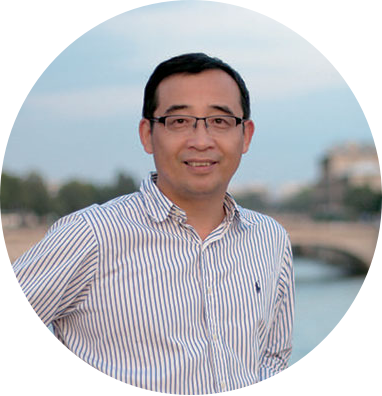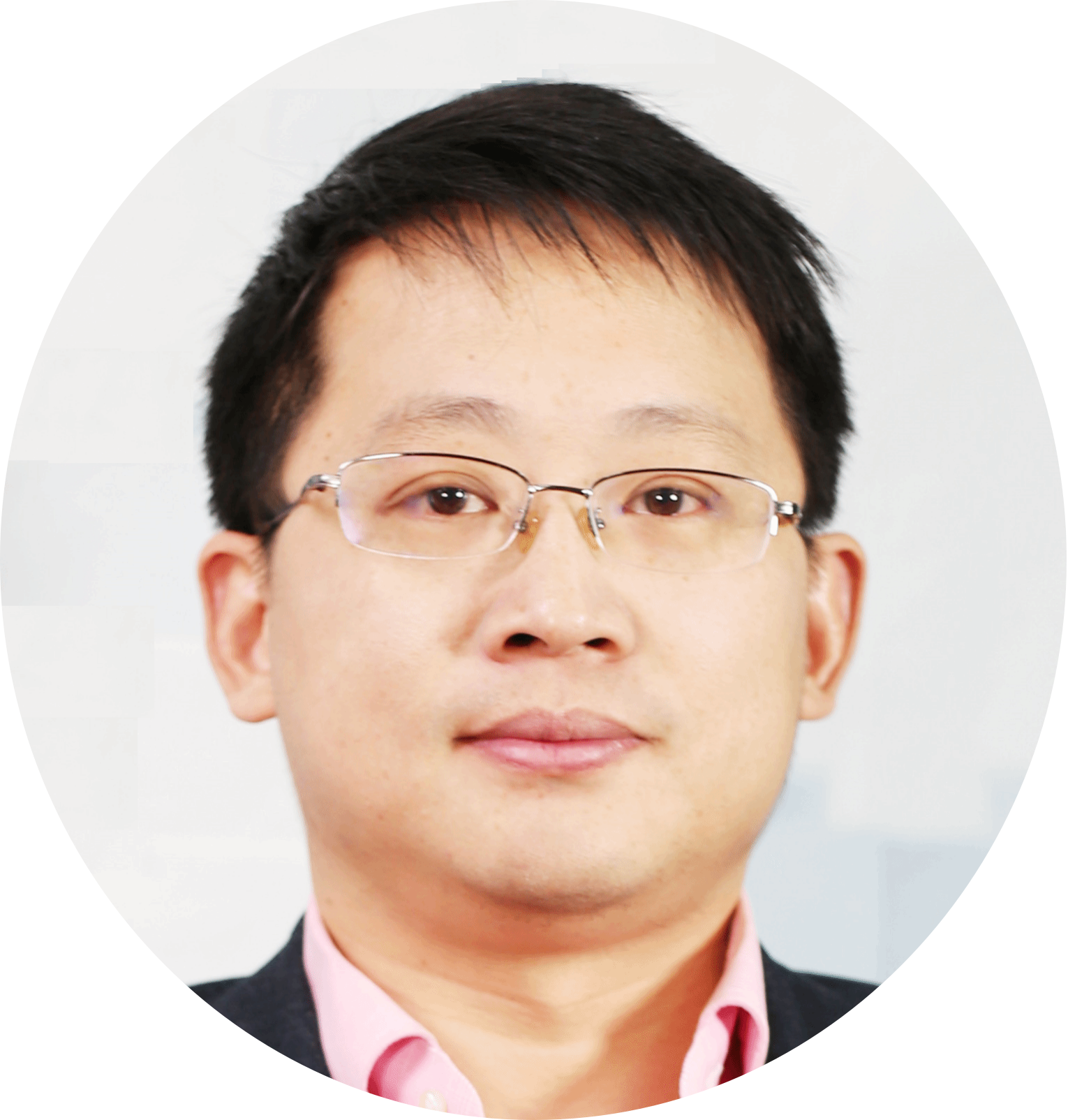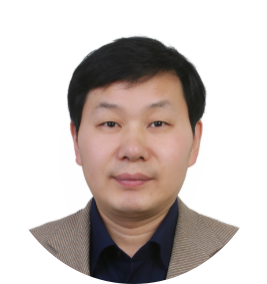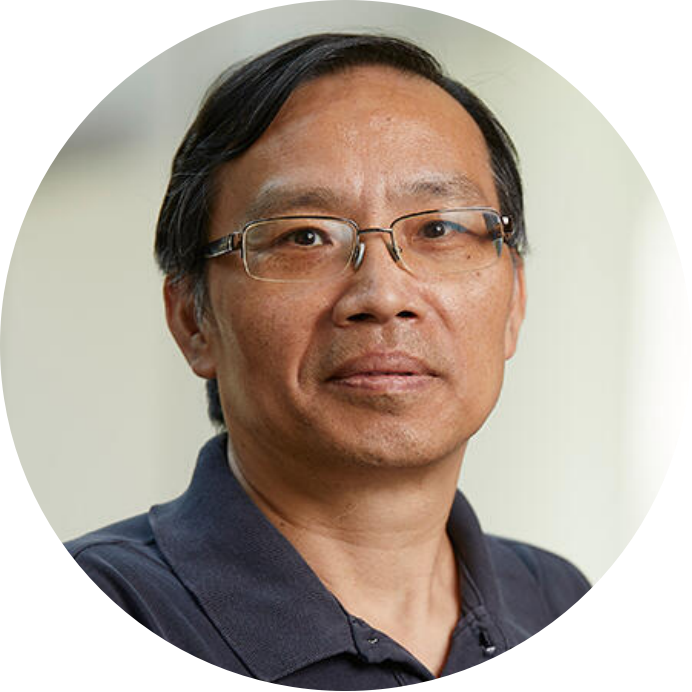

Prof. Shi Jin
Shanghai Jiao Tong University, China
Director of Institute of Natural Sciences, and Chair Professor of Mathematics, at Shanghai Jiao Tong University
Foreign Member of Academia Europaea and a Fellow of European Academy of Sciences
Speech Title: Random Batch Methods for Classical and Quantum Molecular Dynamics
Abstract: Random batch methodswere introduced for general interacting particle systems with large number(N>>1)of particles, with a linear complexity of O(N). We extend this method tomolecular dynamics with Coulomb interactions, in the framework of Ewald summation. We will show its superior performance compared to the current state-of-the-art methods (for example PPPM) for the corresponding problems, inboth computational efficiency and parallelizability.We use it not only to reduce the cost of long range interactions but also the short-range ones, and as a result we are able to simulate 10 million molecules with just one GPU. We also extend it to quantum Monte-Carlo simulation.

Prof. Bo Li
Central China Normal University, China
Associate Dean at the School of Mathematics and Statistics, Central China Normal University
Speech Title: Research and Applications of Educational Measurement and Intelligent Diagnosis in the Era of Educational Big Data
Abstract: This study addresses four fundamental research questions in educational big data: the measurability of learners, the customizability of learning services, the computability of educational contexts, and the interpretability of pedagogical principles. By integrating hypothesis testing and reinforcement learning into classical educational measurement frameworks, we have significantly enhanced the effectiveness of teaching assessment and diagnostic processes. Empirical studies conducted in both university and high school mathematics classrooms, with data-driven instructional adjustments, demonstrate measurable improvements in student learning outcomes.

Prof. Wanyang Dai
Nanjing University, China
Chief Scientist at Su Xia Control Technology
President and CEO of U.S. based (blochchain and quantum computing) SIR Forum (Industial 6.0 Forum)
Speech Title: SPDE-Diffusion Model and Quantum-transformer for Spatial-AI
Abstract: To support online decision-making for spatial-AI including coordinating smart agents/robots with AGI, we establish a generalized quantum-transformer (Q-Transformer) with the federated learning capability of prediction and adaptive feedback control interaction via SPDE-diffusion model. Our diffusion model is a forward-backward coupling stochastic partial differential equation system whose drift parameter vectors can be mapped to different real-world attentions for AGI. Our Q-Transformer consists of quantum encode-decode two parts of convolutional neural networks, which corresponds to the SPDE-diffusion model. This newly proposed Q-Transformer is integrated into our previously developed quantum cloud computing platform as its smart federated learning engine, which is supported by our recently designed and justified neutral atom quantum computer. Smart software agent and hardware robot coordination in specific applications will be presented.

Prof. Jichun Li
University of Nevada Las Vegas
Director of Center for Applied Mathematics and Statistics at University of Nevada Las Vegas
Editor-in-Chief of "Results in Applied Mathematics"
Speech Title: Recent Progress on Mathematical Analysis and Numerical Simulations of Surface Plasmon Polaritons on Monolayer Graphene Sheets
Abstract: The 2-D material graphene was first successfully isolated by Novoselov and Geim in 1994. In 2010, they were awarded Nobel Prizes in Physics for their groundbreaking experiments regarding graphene. Due to graphene’s unique electrical, electromagnetic, and optical characteristics, it has attracted widespread attention, leading to the design of many new systems and equipment with graphene. In this talk, we will review some recent progress on the mathematical analysis of models developed for simulating the surface plasmon polaritons (SPPs) on graphene sheets. We will go over some numerical methods recently developed. Interesting numerical simulations will be presented on various complex graphene sheets.